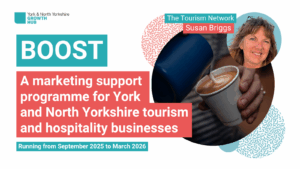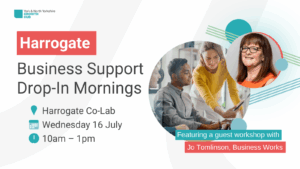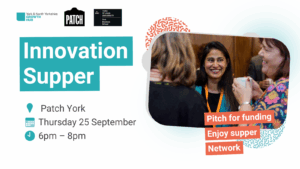
How to perform a sustainability audit
A sustainability audit assesses your business’s environmental and social impacts, ensuring compliance with relevant regulations, and identifying areas where you can make effective change to achieve your sustainability objectives. Here, we guide you through the main steps involved in performing a sustainability audit.

Establish your objectives and plan your approach.
The first step in conducting a sustainability audit is to define your objectives. What specific aspects of your business’s operations do you want to assess? Common areas to consider include energy consumption, waste management, supply chain ethics, staff engagement and training, and community engagement.
Forming an audit team will be helpful, so you have a variety of voices and experiences inputting to the work. Your team should include, where possible, individuals with some knowledge, or an interest in developing knowledge, of sustainability, compliance, and relevant regulations.
Make use of existing guidance and templates to help get you started. We have a Net Zero Toolkit for Businesses that can help you identify potential areas for change and action. Lloyds Bank have also produced a helpful guide, and The Carbon Trust have a guide specifically on performing a carbon audit.
Gather the data
Collect data on your business’ operations and practices related to your audit objectives. This may include energy bills, waste disposal records, supplier information, and voluntary or community activity. The Government provides guidelines on carbon reporting and reducing energy consumption, which can be invaluable during this stage.
Identify areas for improvement
Use the audit findings to identify areas where your business can improve its sustainability practices. This might involve setting specific targets for reducing carbon emissions, or adopting greener supply chain practices or a local-first procurement policy.
Develop an action plan
Create a detailed action plan to address the issues and gaps you’ve identified. Your plan should outline specific actions, responsible parties, timelines, and measurable targets. Align these actions with your own objectives, as well as any regulations and standards you need to meet. Then you can begin implementing your action plan and monitoring your progress. The British Business Bank has further guidance on creating an action plan.
Conducting a sustainability audit for your business is a proactive step in demonstrating your commitment to responsible business practices and aligning with relevant regulations. By adhering to sustainability regulations and consistently improving your practices, your business can contribute to a more sustainable and ethical future.

Learn more
Find out how to create a sustainability plan
Read our guide to the circular economy for tips on improving practice and processes
Articles
Profitability
Profit is a measure of a business’s income relative to its expenses. In other words, an organisation’s ability to generate revenue by using resources that it has available, such as people, materials and equipment. Unless you are running a charitable organisation, profit is generally the primary goal of a company. As well as providing income for the owners of a business, profits allow for investment and growth. Whilst revenue growth is generally a positive indicator, we need to understand profitability if a business is to be successful.
BOOST: A marketing support programme for York and North Yorkshire tourism and hospitality businesses
This practical, action-oriented programme of activity has been developed to help you market your business more effectively, saving time and money. It’s created and delivered by Susan Briggs from The Tourism Network. Susan has over thirty years of successful tourism marketing experience. It’s for visitor-facing tourism businesses such as accommodation providers; visitor attractions; activity and experience providers; creative, retail, food and drink businesses.
Made Smarter Backs Unity Racing on the Road to Singapore
Made Smarter Yorkshire is proud to continue its support for Unity Racing, a team of six exceptional college students competing in the renowned F1 in Schools competition. As the reigning UK national champions, Unity Racing will once again take on the world stage this September, heading to Singapore for the highly anticipated global finals.
Events
10th July 202510:00 am - 1:00 pmFREE
Northallerton Business Support Drop-In Morning
Free workshop included: Understanding Profitability, 10am – 11pm This Northallerton business support drop-in service can help answer your questions and direct you to relevant resources and programmes.
16th July 202510:00 am - 1:00 pmFREE
Harrogate Business Support Drop-In Morning
Free workshop included: Understanding Profitability. This Harrogate business support drop-in service can help answer your questions and direct you to relevant resources and programmes.
25th September 20256:00 pm - 8:00 pm£10
Innovation Supper
Back by popular demand! York Business School, Patch York and the York & North Yorkshire Growth Hub are delighted to bring you our second Innovation Supper! The basic idea is: We provide some supper, charge a small entry fee, then invite local community projects to pitch for the proceeds raised through the fee, and hold a vote to select the winner - It's that simple! It’s a simple way to do some good.
Resources
Vibrant and Sustainable High Street Fund Phase 2 - Webinar Series
This webinar series is designed to provide practical guidance and in-depth support with your application. Applications for Phase Two of the Vibrant and Sustainable High Streets Fund are now open, and will close at 5pm on the 31st July.
Featured Webinar Playlist: Wellbeing
Learn how to build resilience and communication, create a positive work environment, and support the mental health of both your team and yourself with our free wellbeing webinars playlist.
Webinar Recording: Why does Intellectual Property matter to your business?
This webinar will equip you with the knowledge to leverage IP for competitive advantage, investor attraction, and long-term business growth, ultimately showing you how a strategic approach to IP can be the difference between success and missed opportunities.









